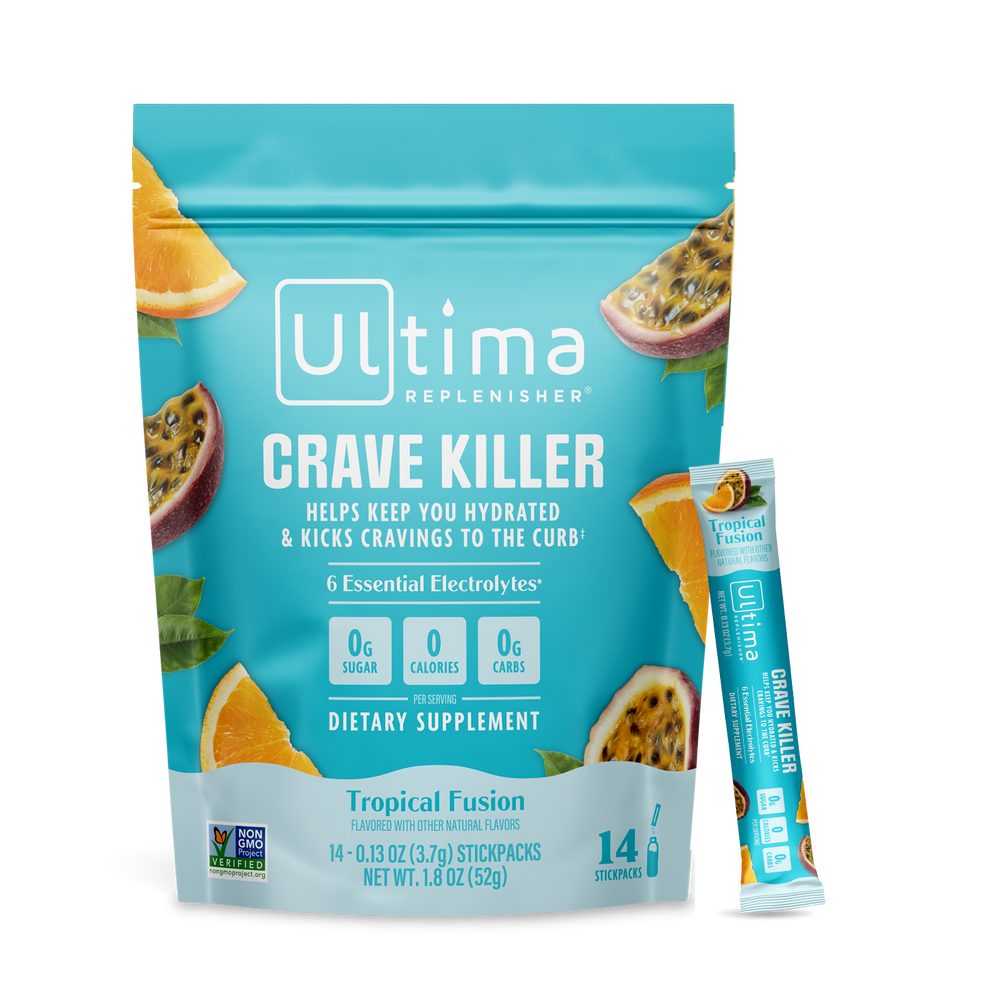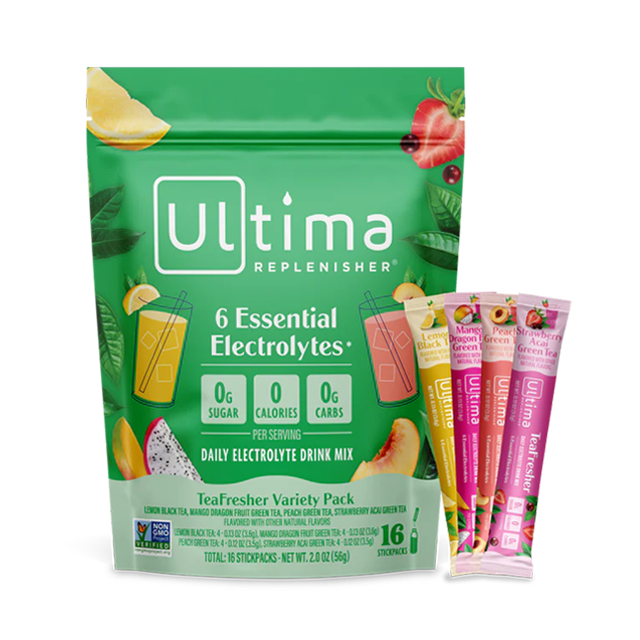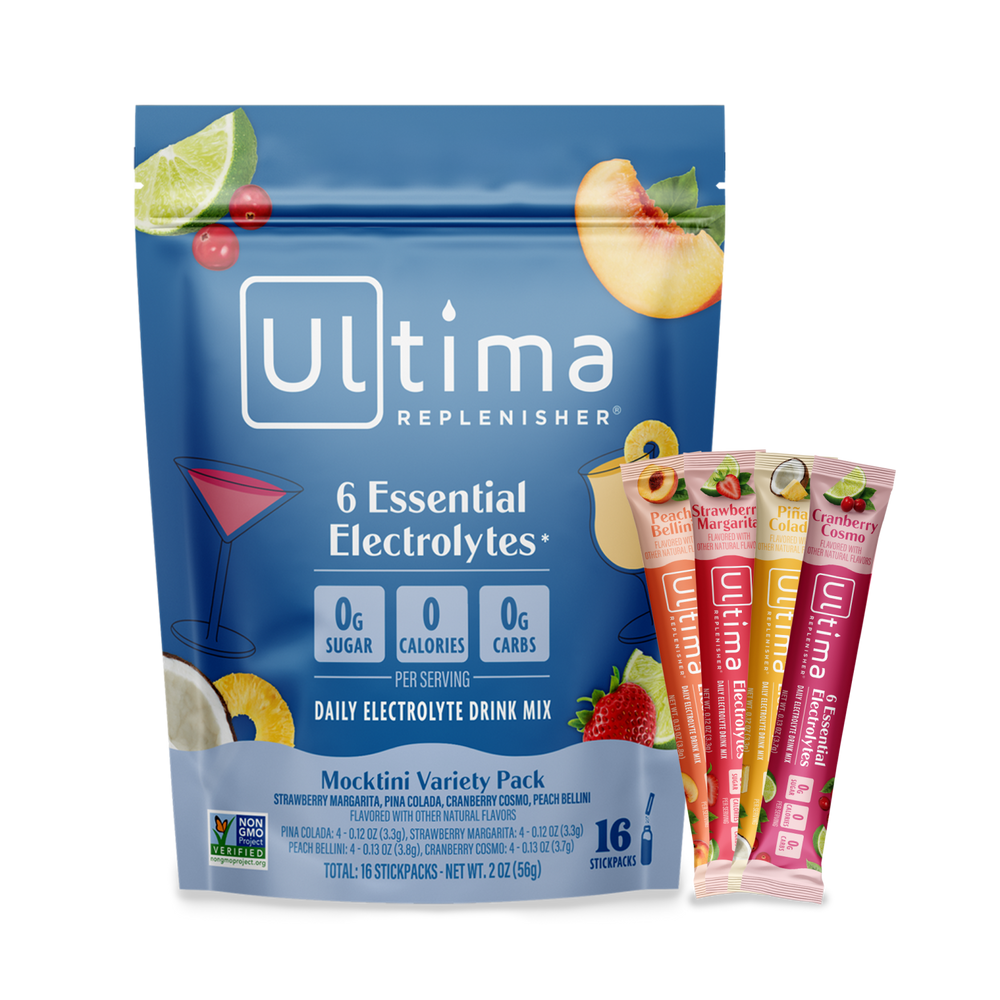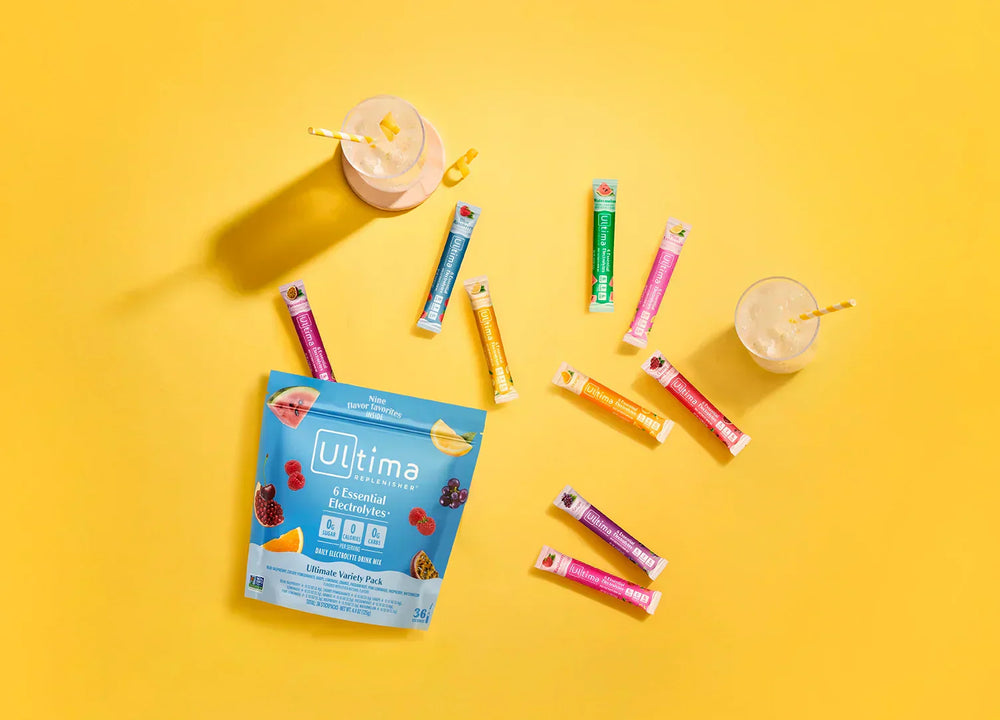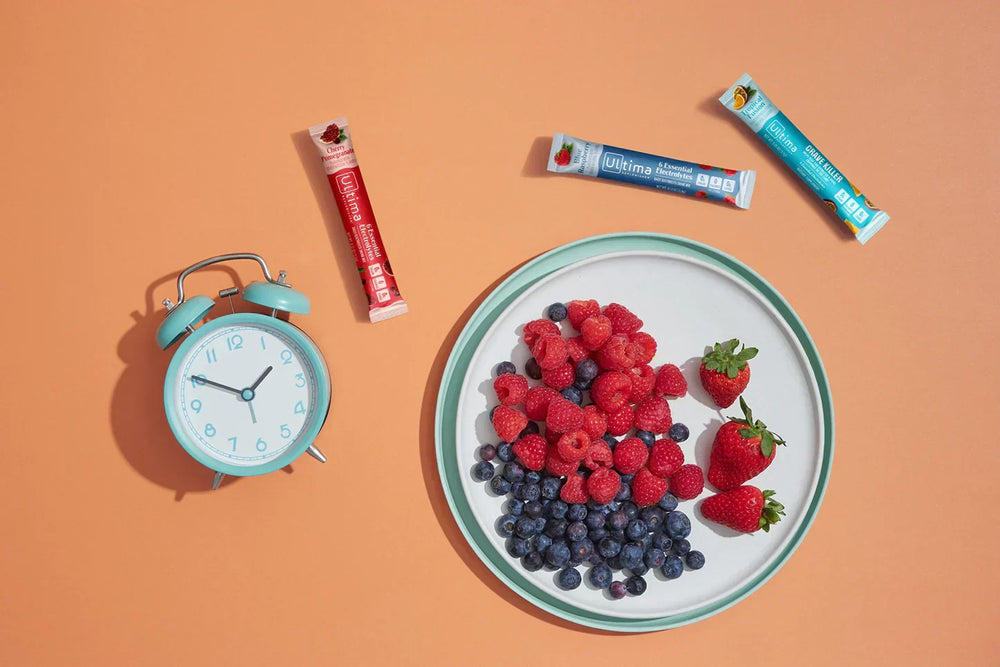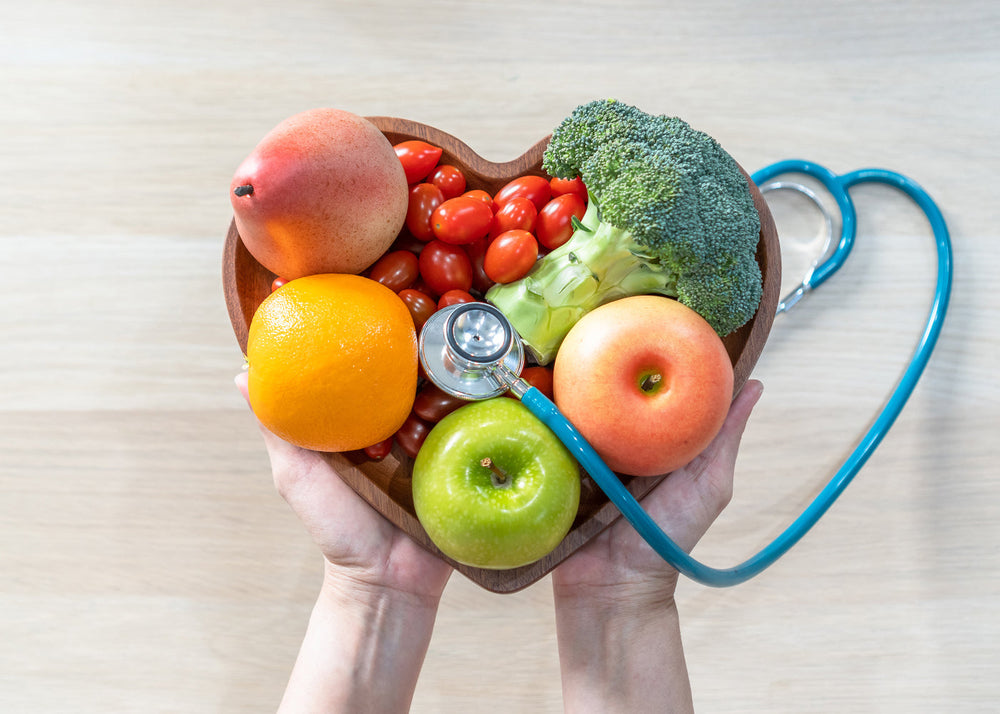
Can Dehydration Cause High Heart Rate? 5 Warning Signs to Know
Can dehydration cause high heart rate? 5 warning signs to know
You’ve heard the usual heart health advice before: eat well, exercise regularly, manage stress. However, one important (and seriously underrated) component to heart health often gets left out of the conversation: staying hydrated.
Your heart is constantly working—it literally beats 24/7—and it needs water to maintain itself. When you skip your daily hydration, your cardiovascular system might overexert itself, and one of the first and most noticeable signs is a high or elevated heart rate.
So let’s answer the big question: Can dehydration cause a high heart rate? Absolutely. Knowing why it happens and what to do about it can help you avoid unnecessary stress on your heart today and in the long run.
Understanding the link between dehydration and heart rate
When you're dehydrated, your body switches to low-power mode. You might feel tired, dizzy and a little off, which are all signs of your body slowing down to conserve energy.
Your heart does the opposite: instead of slowing down, it kicks into overdrive, working harder and faster to keep you alive.
Can dehydration cause high heart rate? What happens to your body when you’re dehydrated
Water is essential to your circulatory system. It helps blood flow more easily, supports oxygen delivery, and regulates body temperature. When you’re dehydrated, your blood volume drops, circulation slows and your heart has to pump faster to keep oxygen moving where it’s needed.
This isn’t just a minor blip; it’s your body’s built-in SOS signal. Lower fluid levels can also cause your blood vessels to constrict, forcing your heart to work harder. Over time, this extra strain may contribute to cardiovascular problems, including an increased risk of heart disease and heart failure.
Staying hydrated helps keep your heart rate in a healthy range and supports long-term heart health.
Can dehydration cause high heart rate?
Yes, and the reason is more than just fluid loss. Dehydration affects electrolyte balance, blood pressure and heart rhythm, which together can cause your cardiovascular system to work overtime and lead to an elevated heart rate.
Electrolytes and your heart
Don’t underestimate electrolytes! Electrolytes are minerals that help regulate everything from nerve signals to muscle contractions, and they play a huge role in keeping your heart rhythm steady. Here’s a quick rundown of the six you should be replenishing daily:
Calcium: helps support a healthy heart rhythm and blood pressure.
Chloride: can help prevent irregular heartbeat and helps maintain fluid balance. It also helps the body absorb calcium and potassium.
Magnesium: plays a critical role in limiting inflammation and supporting a healthy heart rhythm, heart and blood vessel health and blood pressure. However, it’s estimated that at least half of Americans aren’t getting enough magnesium.
Phosphorus: Needed for oxygen delivery to muscles, regulates nerve signaling, and helps repair cells and tissue.
Potassium: Supports the heart muscle, nerve transmission and muscle contraction. It also works with sodium to maintain fluid balance in your body
Sodium: Supports the heart muscle and nerve transmission and is thought to help reduce the risk of heart rhythm disorders, stroke and other heart diseases.
When you get dehydrated, your electrolyte levels fall out of balance. This can cause your heart to skip beats, flutter or race, which can be unsettling at best, and disruptive to your health and wellness at worst.
How hydration affects blood pressure
Reduced fluid in your bloodstream might be another reason your heart rate spikes when you're dehydrated.
With lower blood volume, your heart has to work harder to push blood through your arteries, so it starts beating faster.
That’s why you might notice heart palpitations or a pounding heartbeat after sweating, spending time in the heat, or having a few drinks; your body’s running low on fluids, and your heart’s working overtime to keep it working properly.
When a fast heart rate becomes a health risk
Occasional spikes in heart rate aren’t usually something to stress about. It’s normal for your heart to beat faster after a workout, when you’re feeling anxious or even after a strong cup of coffee. What matters is knowing the difference between a harmless, temporary increase and something more serious.
If your heart’s racing while you’re resting, or you’re feeling weak, dizzy or lightheaded along with it, that might be a red flag.
Dehydration-induced tachycardia (that’s the medical term for an unusually fast heart rate) can lead to complications if it’s not addressed, especially for people with existing health conditions. If your heart rate stays elevated even when you’re resting and comfortable, it’s a good idea to check in with your doctor.
5 Warning Signs That Dehydration May Be Elevating Your Heart Rate
You don’t need any fancy health equipment to know that you’re dehydrated. Your body is really good at sending signals, you just have to know how to recognize them.
1. Persistent Thirst and Dry Mouth
If you’re feeling thirsty, chances are you’re already mildly dehydrated. A dry, sticky mouth is one of the first signs that your fluid levels are dropping.
This can happen faster in hot weather, during exercise, or after eating salty foods, since your body is working harder to conserve water. By the time you feel thirsty, you’re already mildly dehydrated, which means your heart may already be compensating by pumping faster to maintain blood flow.
Hydration is most effective when it’s consistent, not reactive, so rather than waiting until you’re thirsty, try to drink water throughout the day.
2. Dizziness or Lightheadedness During Activity
Do you feel like you’re standing up too fast? Are you feeling wobbly during a walk? Dehydration can lower your blood pressure, which forces your heart to work harder to maintain steady circulation.
This sudden dip makes it harder for your heart to push blood upward to your brain, which can cause dizziness, wobbliness or a “head rush” feeling. These symptoms are more common during physical activity, hot weather or if you’ve been sweating without replenishing lost fluids and electrolytes.
When this happens, pause and rehydrate, preferably with an electrolyte mix if you’ve been sweating or spending time in the heat.
3. Unusual Fatigue or Weakness
If you’re feeling unusually tired despite a full night’s sleep, you might be dehydrated. Low blood volume and reduced oxygen delivery can deplete your energy more quickly than you think!
When you’re dehydrated, your heart has to work harder to deliver oxygen and nutrients to your muscles. This increased workload can leave you feeling sluggish, heavy or weak even after a full night’s rest. Reduced blood volume means less oxygen reaches your tissues, which slows your energy production and can cause fatigue to set in faster than usual. The effect is even more noticeable if you’re exercising, recovering from illness or simply going about a busy day without adequate water intake.
Instead of powering through fatigue, try increasing your fluid intake throughout the day, and take note of how you feel the next morning. Sometimes, your body just needs a little extra hydration to bounce back.
Read more: Why You Should Start Your Day Hydrated
4. Palpitations or Irregular Heartbeats
Dehydration can disrupt your electrolyte balance, which affects your heart’s rhythm and can lead to a fluttering, pounding or skipping feeling in your chest.
These episodes may happen more often in hot climates, after intense workouts, or during illnesses that cause fluid loss. While occasional palpitations from dehydration often resolve with rehydration, ongoing or severe irregularities can be a sign of a more serious condition.
If you notice heart palpitations or an irregular heartbeat, pause, rehydrate and give your body a chance to recover. If something still feels off, make sure you check in with your doctor.
5. Low Blood Pressure or Fainting Spells
In more extreme cases, dehydration can cause your blood pressure to drop so low that you feel faint or even pass out.
This happens because low fluid volume reduces the amount of blood circulating in your body, forcing your heart to work overtime while still struggling to deliver oxygen efficiently. These episodes can occur after prolonged heat exposure, intense exercise without adequate hydration or during illnesses that cause significant fluid loss.
If you feel lightheaded, lie down, elevate your legs and rehydrate slowly. If it happens more than once, talk to your doctor to rule out any underlying issues.
Who Is at Higher Risk for Dehydration-Induced Tachycardia?
Dehydration doesn’t affect everyone the same way. Some people might be more vulnerable, including:
Athletes and Active Individuals
Athletes and active people tend to sweat…a lot. When you sweat, you lose fluids and electrolytes. If you’re not replenishing properly, your heart might try to compensate with an elevated heart rate.
Instead of waiting until after your workout to hydrate, make sure you’re sipping proactively before, during and after activity to help your body stay balanced.
Older Adults and People with Chronic Illness
Did you know that your sense of thirst naturally decreases as you age?
This happens because the brain’s thirst-regulating mechanisms become less responsive over time, meaning your body doesn’t send as strong a signal when fluid levels drop. As a result, older adults may not feel thirsty until they’re already mildly dehydrated.
Combine that with certain medications, chronic health conditions or hot weather, and dehydration can sneak up without you even realizing it, especially if you’re an older adult or those managing an ongoing illness.
To stay ahead of it, make hydration part of your daily routine. Sip water regularly throughout the day, and add an electrolyte mix when needed to help keep your fluid levels and heart rate in a healthy range.
Those on Diuretic Medications
Some medications (usually those prescribed for conditions like high blood pressure, heart failure or certain kidney disorders) increase urination, which can lead to fluid loss and a drop in essential electrolytes.
Many medications with a diuretic side effect work by acting on the kidneys to alter how sodium is reabsorbed into the bloodstream. As more sodium is excreted in your urine, water follows, leading to greater fluid loss.
While this process can be beneficial for managing fluid retention, it also increases the risk of dehydration and electrolyte imbalances if you’re not replenishing what’s lost. In turn, low fluid levels can cause your heart to work harder, sometimes elevating your heart rate to maintain circulation.
If you’re taking (or planning to start) a medication with diuretic effects, chat with your doctor about how to minimize the risk of dehydration and keep your hydration levels steady.
Learn more: How to Hydrate Fast - 5 Simple Ways for Rehydration
How to Prevent Dehydration and Protect Your Heart
Now for some good news: you don’t need to overhaul your lifestyle or make any drastic changes to stay on top of your daily hydration and heart health. Small tweaks and simple guidelines around how you hydrate can go a long way.
Daily Water Intake Recommendations
Sure, you know you should drink enough water, but what does “enough” actually mean? General guidelines suggest about 11.5 cups per day for women and 15.5 cups for men.
If you’re very active, pregnant, breastfeeding, sick or live in a hot climate, consider those numbers a starting point. You’ll likely need more to stay properly hydrated.
Read more: How to stay hydrated in hot weather
Incorporating Electrolyte-Rich Beverages
Water’s great, but sometimes your body needs some more support. If you’re wondering how to stay hydrated without drinking water, electrolyte drinks can help restore the minerals your body loses every day and support better hydration overall.
Remember to be mindful about what you’re sipping. Many electrolyte drinks and drink mixes are loaded with sodium, sugar, artificial sweeteners, dyes and other ingredients that aren’t great for your body. Look for formulas with no sugar and plant-based flavors and colors, like Ultima Replenisher.
Monitoring Urine Color and Fluid Loss
It might sound a little funny, but checking your pee is actually one of the easiest ways to gauge your hydration. Here's a quick guide to what the colors can tell you:
-
Pale yellow: You’re hydrated and good to go.
-
Dark yellow or amber: You’re running low and should drink more fluids.
-
Totally clear: You might be overhydrating, so give it a pause.
If you’re not peeing often or still feel dry even after drinking water, you could be low on electrolytes. Adding an electrolyte mix to your water can help you replenish.
Can dehydration cause high heart rate? Staying hydrated keeps your heart happy
Can dehydration cause high heart rate? Yep, and your heart’s counting on you to notice the signs!
From dizziness to racing pulses, dehydration symptoms can sneak up on anyone. Good thing a hydration routine that includes water and electrolytes can make a big difference.
Looking for a yummy, ultra-sippable way to boost your daily hydration? Browse our full lineup of electrolyte drinks and find the mix that fits your routine.

